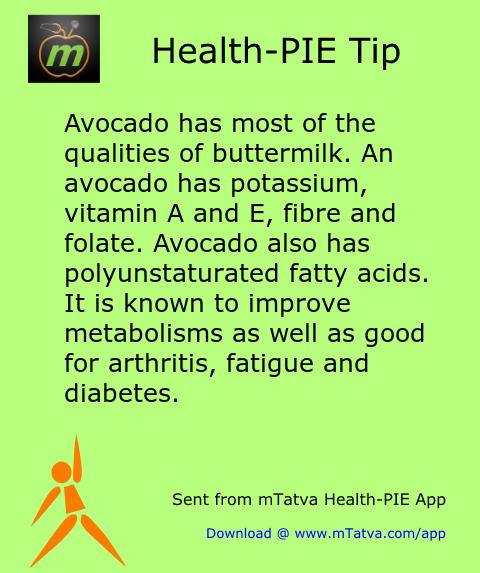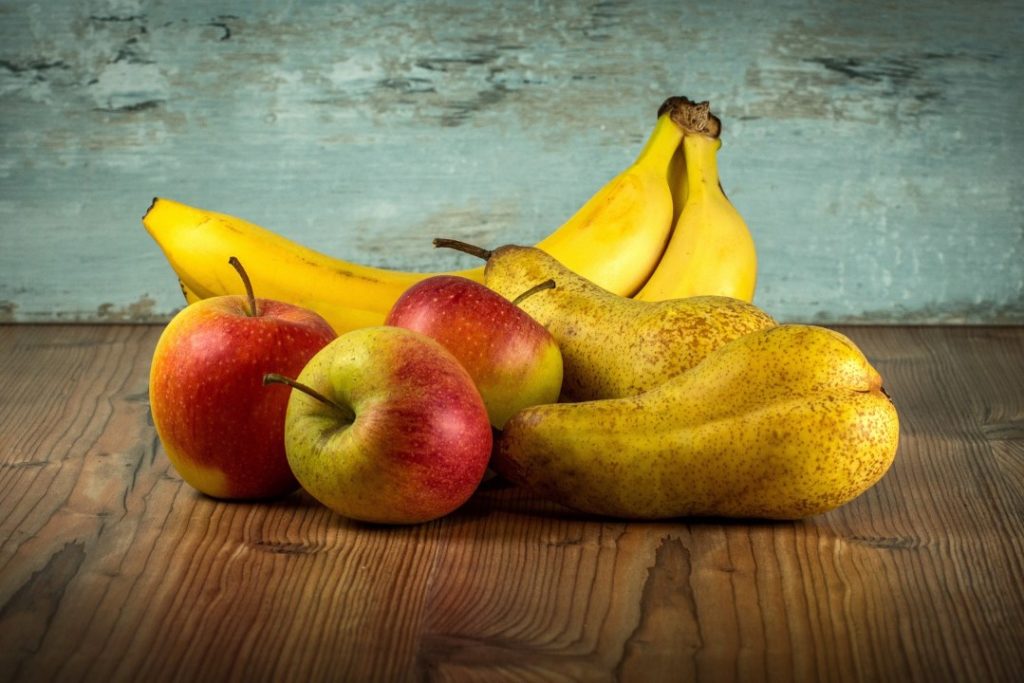
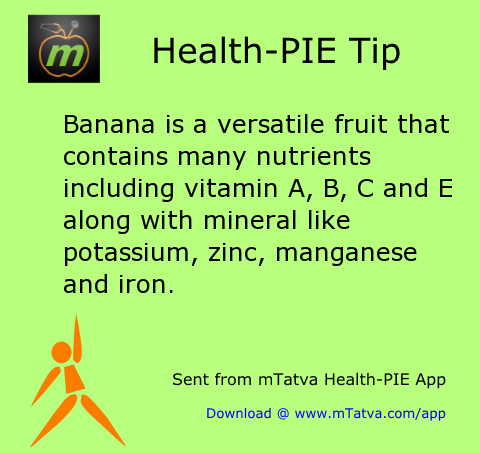
Banana is a versatile fruit that contains many nutrients including vitamin A, B, C and E along with mineral like potassium, zinc, manganese and iron.
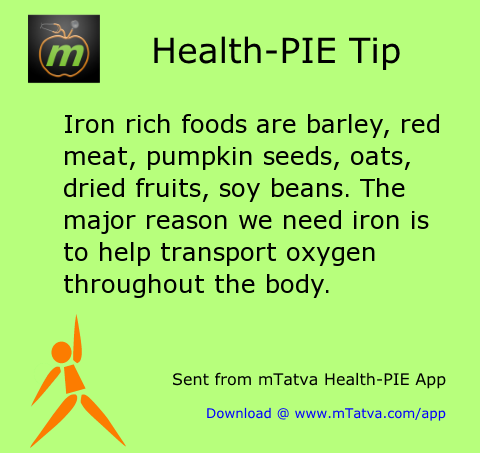
Iron rich foods are barley, red meat, pumpkin seeds, oats, dried fruits, soy beans. The major reason we need iron is to help transport oxygen throughout the body.
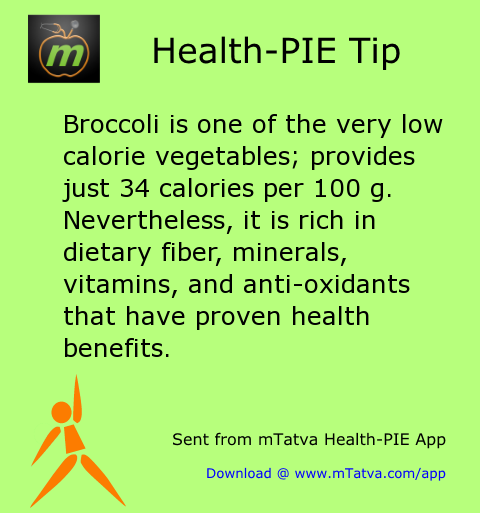
Broccoli is one of the very low calorie vegetables; provides just 34 calories per 100 g. Nevertheless, it is rich in dietary fiber, minerals, vitamins, and anti-oxidants that have proven health benefits.
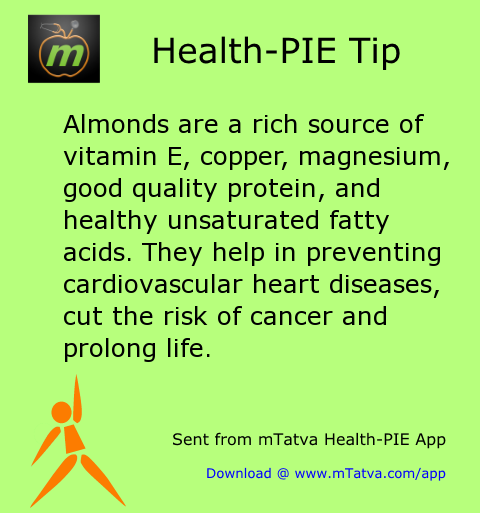
Almonds are a rich source of vitamin E, copper, magnesium, good quality protein, and healthy unsaturated fatty acids. They help in preventing cardiovascular heart diseases, cut the risk of cancer and prolong life.
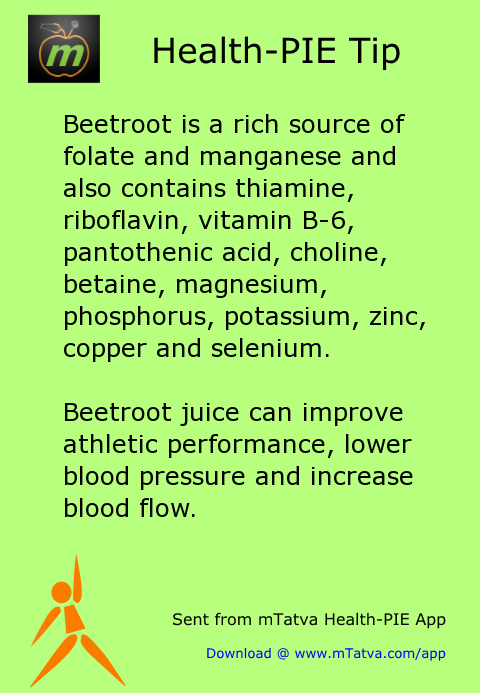
Beetroot is a rich source of folate and manganese and also contains thiamine, riboflavin, vitamin B-6, pantothenic acid, choline, betaine, magnesium, phosphorus, potassium, zinc, copper and selenium. Beetroot juice can improve athletic performance, lower blood pressure and increase blood flow.
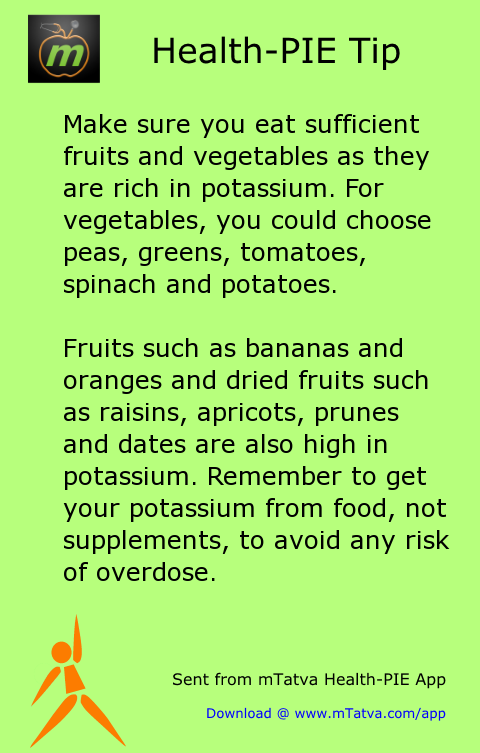
Make sure you eat sufficient fruits and vegetables as they are rich in potassium. For vegetables, you could choose peas, greens, tomatoes, spinach and potatoes. Fruits such as bananas and oranges and dried fruits such as raisins, apricots, prunes and dates are also high in potassium. Remember to get your potassium from food, not supplements, to avoid any risk of overdose.
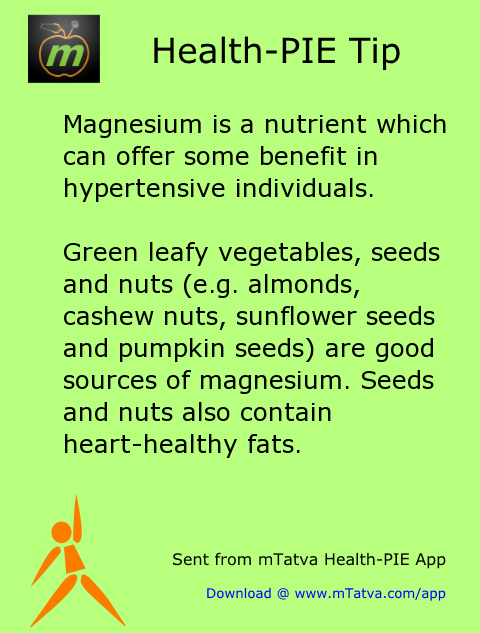
Magnesium is a nutrient which can offer some benefit in hypertensive individuals. Green leafy vegetables, seeds and nuts (e.g. almonds, cashew nuts, sunflower seeds and pumpkin seeds) are good sources of magnesium. Seeds and nuts also contain heart-healthy fats.
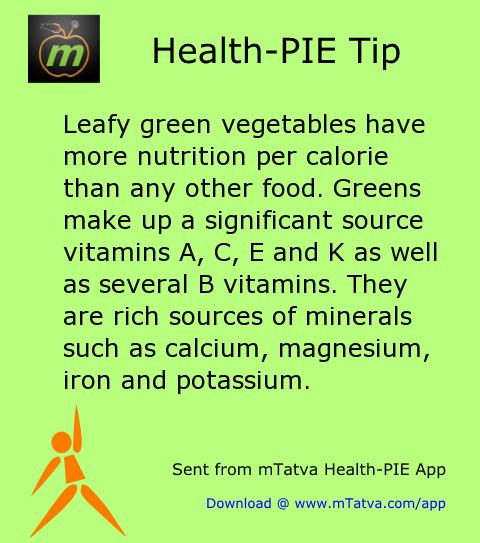
Leafy green vegetables have more nutrition per calorie than any other food. Greens make up a significant source vitamins A, C, E and K as well as several B vitamins. They are rich sources of minerals such as calcium, magnesium, iron and potassium.
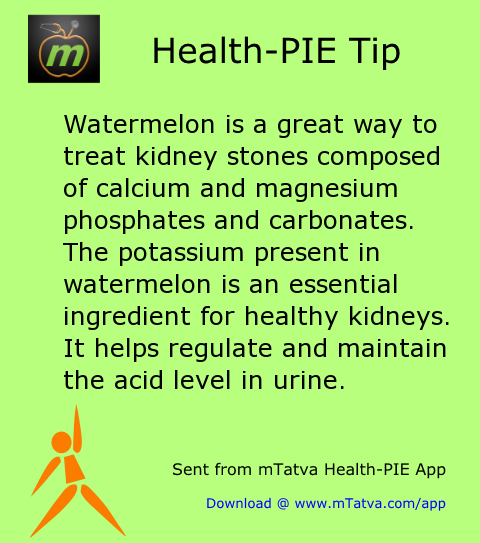
Watermelon is a great way to treat kidney stones composed of calcium and magnesium phosphates and carbonates. The potassium present in watermelon is an essential ingredient for healthy kidneys. It helps regulate and maintain the acid level in urine.
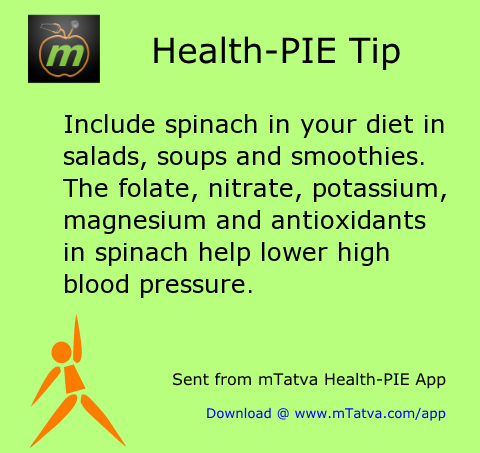
Include spinach in your diet in salads, soups and smoothies. The folate, nitrate, potassium, magnesium and antioxidants in spinach help lower high blood pressure.
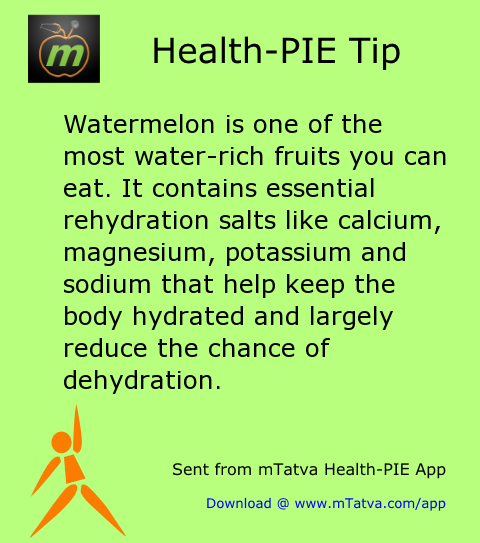
Watermelon is one of the most water-rich fruits you can eat. It contains essential rehydration salts like calcium, magnesium, potassium and sodium that help keep the body hydrated and largely reduce the chance of dehydration.
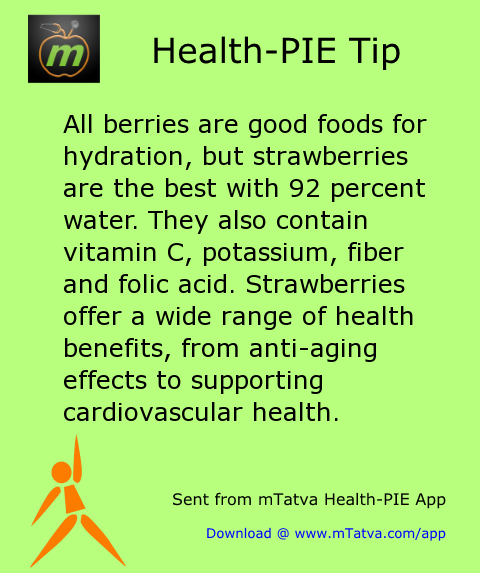
All berries are good foods for hydration, but strawberries are the best with 92 percent water. They also contain vitamin C, potassium, fiber and folic acid. Strawberries offer a wide range of health benefits, from anti-aging effects to supporting cardiovascular health.
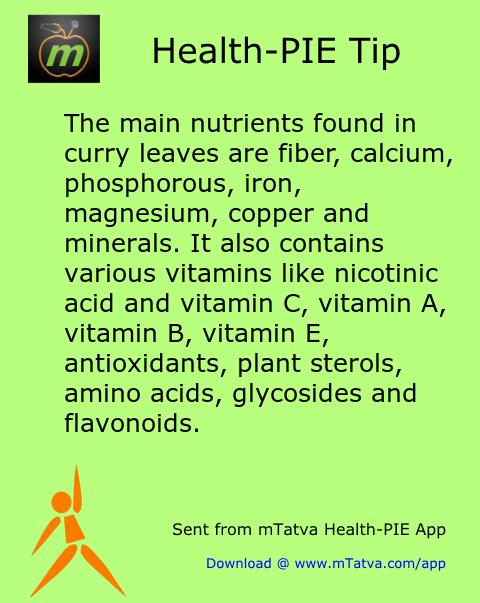
The main nutrients found in curry leaves are fiber, calcium, phosphorous, iron, magnesium, copper and minerals. It also contains various vitamins like nicotinic acid and vitamin C, vitamin A, vitamin B, vitamin E, antioxidants, plant sterols, amino acids, glycosides and flavonoids.

Broccoli is very low in calories but packed with fiber, vitamins, and minerals. It also contains powerful antioxidants that fight various cancers.
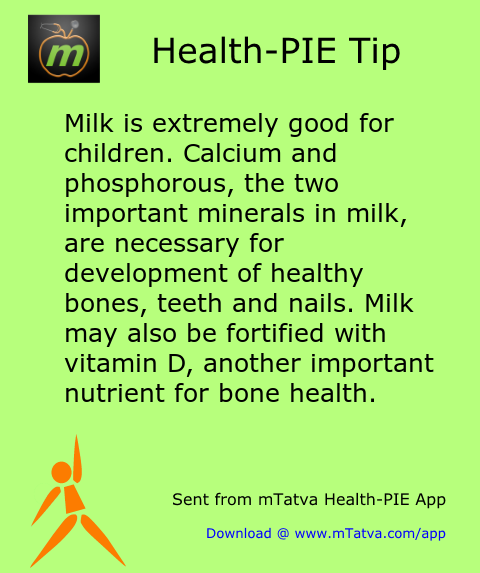
Milk is extremely good for children. Calcium and phosphorous, the two important minerals in milk, are necessary for development of healthy bones, teeth and nails. Milk may also be fortified with vitamin D, another important nutrient for bone health.
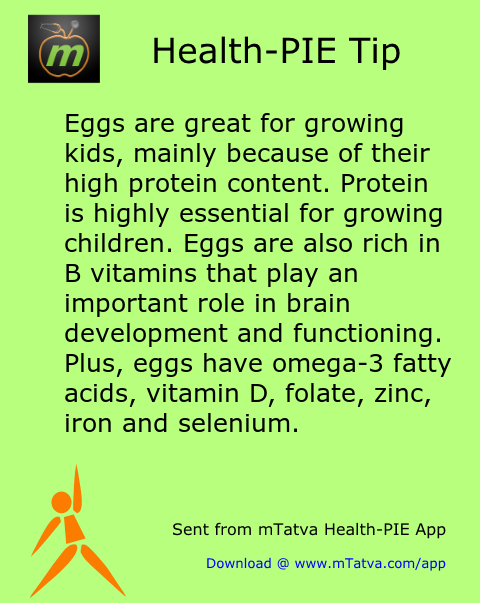
Eggs are great for growing kids, mainly because of their high protein content. Protein is highly essential for growing children. Eggs are also rich in B vitamins that play an important role in brain development and functioning. Plus, eggs have omega-3 fatty acids, vitamin D, folate, zinc, iron and selenium.
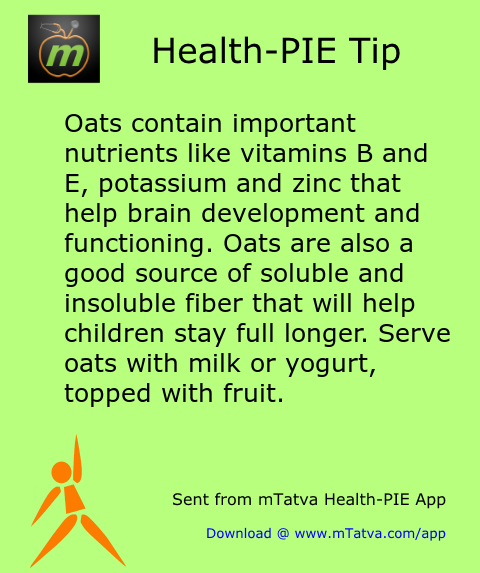
Oats contain important nutrients like vitamins B and E, potassium and zinc that help brain development and functioning. Oats are also a good source of soluble and insoluble fiber that will help children stay full longer. Serve oats with milk or yogurt, topped with fruit.
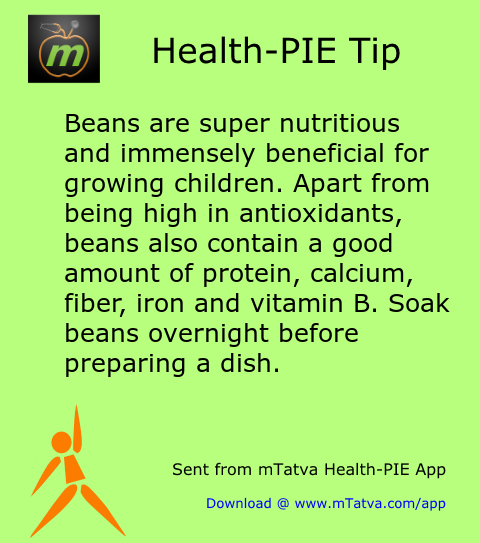
Beans are super nutritious and immensely beneficial for growing children. Apart from being high in antioxidants, beans also contain a good amount of protein, calcium, fiber, iron and vitamin B. Soak beans overnight before preparing a dish.
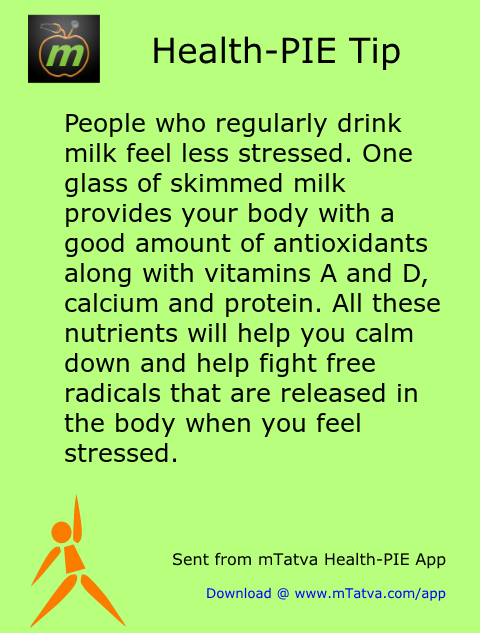
People who regularly drink milk feel less stressed. One glass of skimmed milk provides your body with a good amount of antioxidants along with vitamins A and D, calcium and protein. All these nutrients will help you calm down and help fight free radicals that are released in the body when you feel stressed.
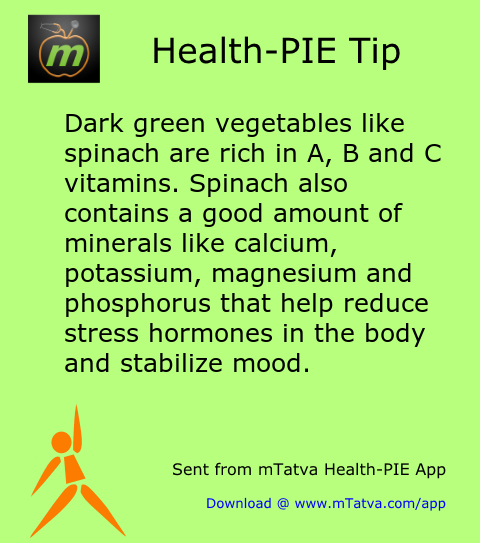
Dark green vegetables like spinach are rich in A, B and C vitamins. Spinach also contains a good amount of minerals like calcium, potassium, magnesium and phosphorus that help reduce stress hormones in the body and stabilize mood.

Avocados contain a good amount of minerals, protein, and vitamins C and E. They are also high in fiber, potassium and healthy fat. All these nutrients help regulate stress hormones by keeping your nerves and brain cells healthy. Eating one-half or whole avocado daily can significantly lower your blood pressure level and reduce your stress hormone level.
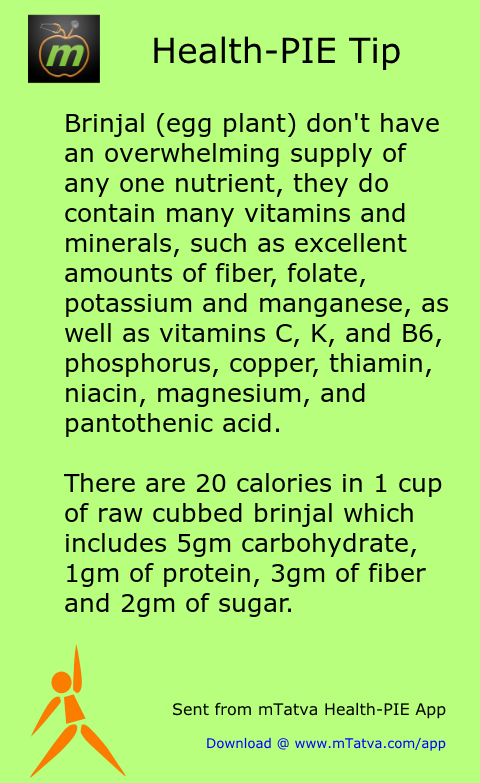
Brinjal (egg plant) don’t have an overwhelming supply of any one nutrient, they do contain many vitamins and minerals, such as excellent amounts of fiber, folate, potassium and manganese, as well as vitamins C, K, and B6, phosphorus, copper, thiamin, niacin, magnesium, and pantothenic acid. There are 20 calories in 1 cup of raw cubbed brinjal which includes 5gm carbohydrate, 1gm of protein, 3gm of fiber and 2gm of sugar.
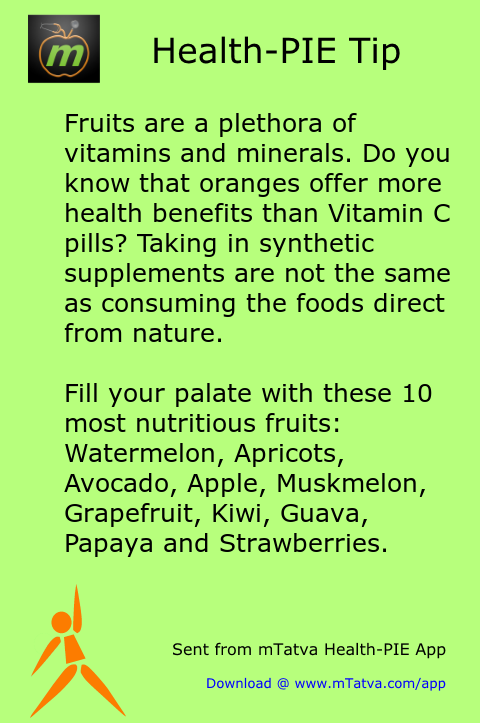
Fruits are a plethora of vitamins and minerals. Do you know that oranges offer more health benefits than Vitamin C pills? Taking in synthetic supplements are not the same as consuming the foods direct from nature. Fill your palate with these 10 most nutritious fruits: Watermelon, Apricots, Avocado, Apple, Muskmelon, Grapefruit, Kiwi, Guava, Papaya and Strawberries.
